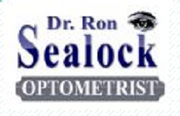
When you struggle to see at night, it can be difficult to enjoy an evening away from home or drive after the sun goes down. Fortunately, by narrowing down the cause of night vision problems, you can seek help from your eye doctor early, preventing permanent disability. Here are three causes of poor night vision and how your eye doctor can help.
3 Reasons You May Struggle With Night Vision
1. Cataracts
Cataracts form when cells die and cloud your eye’s lens. Cataracts typically occur as a result of old age but can also occur in younger individuals as a result of eye trauma, surgeries, or conditions like diabetes. One of the first symptoms of cataracts is poor night vision, so speak with your eye doctor if you struggle to see at night. Your natural lenses can be replaced by artificial lenses to clear your vision.
2. Lack of Vitamin A
 Carrots keep your eyes healthy. If you aren’t getting enough Vitamin A from fruits, vegetables, or supplements, you may develop issues with night vision. If you start struggling to see at night, ask your doctor if you should take a Vitamin A supplement; they can also explain how to adjust your diet to get more of the nutrients you need.
Carrots keep your eyes healthy. If you aren’t getting enough Vitamin A from fruits, vegetables, or supplements, you may develop issues with night vision. If you start struggling to see at night, ask your doctor if you should take a Vitamin A supplement; they can also explain how to adjust your diet to get more of the nutrients you need.
3. Retinitis Pigmentosa
Retinitis Pigmentosa — or RP — is a genetic condition that leads to discoloration of your retina. This condition disrupts the photoreceptors in the eye, making it more difficult to see properly. RP usually starts to impact patients before the age of 30, and there are no known cures. However, eye doctors can help by prescribing medication, prescription sunglasses, or retinal implants that help the patient to see.
If you have been struggling with poor night vision, don’t wait to see Dr. Ron Sealock. Based out of Dothan, AL, this trusted eye doctor can help with everything from eye examinations and new glasses to glaucoma screenings and treatment for macular degeneration. This state-of-the-art practice also uses the Zeiss Clarus Retinal Camera to screen for retinal problems, saving patients time and discomfort. To find out more about how they can help, visit their website or give their office a call at (334) 793-9607.
About the Business
Have a question? Ask the experts!
Send your question

